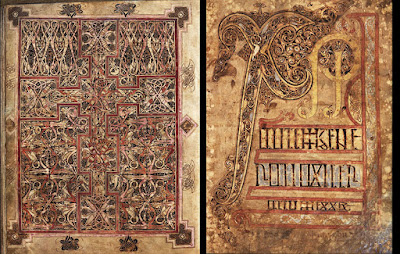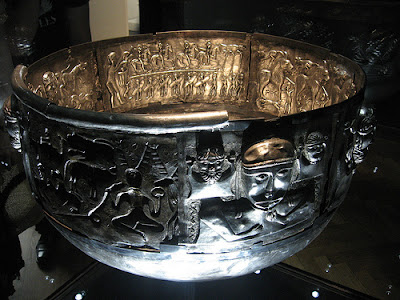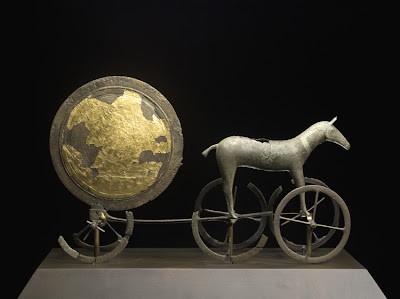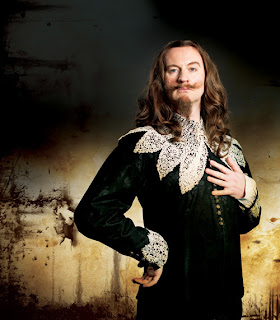Way back in June, tickets went on sale for a production of '
Coriolanus' at the
Donmar Warehouse in London, with
Tom Hiddleston in the title role.
I was originally hoping to go with friends, but it appeared that everyone else had the same idea, and despite trying the moment that the tickets went on general sale, it was almost sold but immediately and I could only get a single ticket, and only on New Year's Eve.
So, Tuesday saw me setting off for London, on a surprisingly quiet train, travelling through water-logged country (but not as much flooding as I'd expected - most of the rivers were very full, but didn't, for the most part, seem to have burst their banks, or at least not within sight of the railway!) I'd built in lots of extra time in case of travel delays, so I arrived with plenty of time to check into my hotel (also booked back in June, which is just as well, it would have cost me more than twice as much had I left it to closer to the time to book!), eat and change before heading to Seven Dials and the Donmar Warehouse.
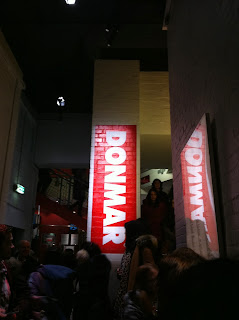
I haven't been there before - it's not a big space -just 4 rows of seats in the stalls, wrapped round 3 sides of the stage, and a slightly larger number of seats (I think) up in the circle. I was in the back row of the stalls, and right round almost at the end of the row, so I saw a lot of the action side on, but although this did mean missing some of the actors facial expressions at times, this wasn't a major issue. (and if I am 100% honest, there are worse fates, than to find oneself forced to stare at Tom Hiddleston's backside.. Or
Hadley Fraser's, come to that.)
I haven't ever seen 'Coriolanus' before,(I saw parts of the Ralph Fiennes film version, but not all of it) and I am not familiar with the play (although I think may read it now) and I think it has probably been cut quite a bit for this production, but it's not difficult to follow, and the lack of familiarity meant I was really focused on the dialogue, and not on waiting for familiar speeches or quotations.
For others who may be equally unfamiliar, the play focuses on Caius Martius,(later Caius Martius Coriolanus) a noble of Rome. At the start of the play, we see the People of Rome are discontented, calling for bread, and fairly priced grain. Martius is one of the few to stand against them, sowing the seeds of their hatred of him. Mark Gatiss, as Menenius, is more conciliatory and diplomatic (shades of his Mycroft, but much more approachable!)
In this production, there are few props or scenery, and the citizens mark their discontent with graffiti on the brick wall at the back of the stage, the Senate is represented by a row of chairs, and other than a lectern there are no other furnishings. Costumes are similarly sparse - a mixture of modern clothes with swords and leather breastplates which works surprisingly well.
Martius goes off to war, and we meet his formidable mother, Volumnia (Deborah Findlay) and his wife, Virgilia (Birgitte Hjort Sørensen). Volumnia is clearly the kind of Roman mother who expects her sons to return bearing their shields or upon them - and Findlay and Hiddleston do a fantastic job of showing the relationship between mother and son - it's obvious that Volumnia has shaped Coriolanus's character - he is desperate for her approval, and she is single minded in her pride.
We then see Martius as soldier, taking part in the war against the Volscians - at the siege of Corioli, he is the ultimate soldier - where others falter and are willing to give up, (in the face of rains of ash, and fire) he swarms up a ladder and into the city, to reappear, bloodied from head to toe, as his companions give him up for lost, pausing only to reassure them before moving on to engage the Volscian general, Aufidius (Hadley Fraser) in single combat. he is, perhaps inevitably, victorious. The fight was a very physical one, with the actors sword-fighting, then wrestling, throwing each other around the stage.
I admit that I lost the plot very slightly here. On account of that nice Mr Hiddleston taking his top off and having a quick shower. In a way which was, I am sure, entirely necessarily and justified. I'm sure Shakespeare would have said so, too. There is probably a footnote in a lost folio somewhere suggesting it.
Anyway, after his shower, and being given the name Coriolanus for conquering Coriolis all on his own, Coriolanus returns to Rome where he falls out with the populous due to his unwillingness to play politics. All joking aside, Hiddleston was superb - he brilliantly conveyed a mixture of contempt for the system and pride in his own achievements - as Coriolanus spectacularly, and inevitably, shoots himself in the foot.
It was at this point that I started to doubt the wisdom of the early Romans. It seems to me, that if you have a spectacularly successful soldier who has recently single-handedly invaded and defeated a rival city-state, then it is, to say the least, a little short-sighted to piss him off, throw rotting fruit at him and banish him from the city. You might make him angry, and you won't like him when he is angry..
Whatever his other failings (personal relationships, for one) Coriolanus doesn't lack chutzpah, and goes straight to Aufidius (last seen, if you recall, being comprehensively defeated both in battle and in single combat by Coriolanus) to put himself forward as a conquering-general-for-hire, in a home-erotic scene which leaves you wondering whether Aufidius is going to cut Coriolanus's throat, or take him to bed...
By this point, it's not hard to see that things are not going to end well, and they don't. Coriolanus is, ultimately, a tragic hero, and he finds himself, inevitably, at the gates of Rome at the head of an invading army, facing first his friend and mentor Menenius, and then his wife, child, and mother, as they try to persuade him not to invade and conquer his former home. The moment when he gives in to his mother's entreaty, and you can see him make that choice, to sacrifice himself, rather than his wife, son, and mother, is heartbreaking. Particularly as Volumnia seems unaware of the consequences of her action.
The play concludes with Coriolanus submitting to Aufidius's judgement for having failed to drive home his attack on Rome, and is executed (lots more blood.)
Over all? If I want to be picky, there were times when the use of the chairs on stage as props was a bit irritating, and I felt that the small child playing Coriolanus's son was mostly a distraction (He didn't speak until the final scenes, but appeared at various points to do.. nothing much)
But these are very minor points - the positives are much greater, and I loved that hiddleston gives us a Coriolanus who is very human.
The run at the Donmar is completely sold out, but the production is being broadcast to cinemas as by
NTLive - on 30th January in the Uk, and other dates elsewhere - well worth seeing if you manage it (I'm going - I want to see it all again)
And did I mention? that Hiddleston is a damn fine actor.





